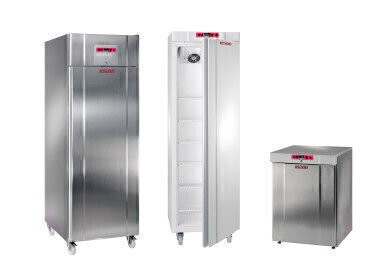-
 IC Cooled Incubators from LTE Scientific.
IC Cooled Incubators from LTE Scientific.
Incubators
Cooled Incubator Selection: Important factors to consider
Jul 05 2021
Cooled incubators are designed to maintain a constant temperature and humidity based on requirements for laboratory experiments. It is important to sustain a stable atmosphere to optimise microbiological or cell culture growth. Recent advances in the design, control and refrigerant type ensure high performance and reliability.
Can cooled incubators be environmentally-friendly?
The stylish IC range of Cooled Incubators from LTE Scientific use refrigerants R290 and R600a which have a Global Warming Potential (GWP) as low as 3. This compared with lower energy consumption will help lower running costs whilst reducing your carbon footprint.
Accurate temperature performance and space-efficient storage capacities are key features of the IC range. All IC Cooled Incubators incorporate a quiet and effective fan circulation system which distributes the air evenly throughout the chamber. All models are designed to operate between +2ºC and +50ºC.
4 sizes are available, and all models can be supplied with either a white epoxy coated or stainless-steel exterior finish. Additionally, all models can also be supplied with double-glazed glass doors. Interiors are high impact-resistant and durable ABS. The entire range also has a one-piece door seal which can be easily removed making the whole cabinet extremely easy to clean.
A major feature of the benchtop/under bench IC200 model is its impressive usable chamber capacity of 92-litres, which makes it one of the largest under-bench cooled incubators available. In addition, the IC200 range can be stacked, thus making good use of floor area in the laboratory. The IC400 has an impressive 294-litre capacity yet it only takes up 595mm x 640mm floor area.
For easy maneuverability, IC400 and IC600 models are supplied on castors as standard.
IC Cooled Incubators are controlled via an electronic PID controller providing close temperature control and variation throughout the chambers. For added safety, over-temperature protection is provided via a class 2 limiter.
More information online
Digital Edition
International Labmate 49.6 - Sept 2024
September 2024
Chromatography Articles - HPLC gradient validation using non-invasive flowmeters Mass Spectrometry & Spectroscopy Articles - From R&D to QC, making NMR accessible for everyone: Putting NMR...
View all digital editions
Events
Oct 30 2024 Birmingham, UK
Oct 30 2024 Manchester, UK
Nov 11 2024 Dusseldorf, Germany
Nov 12 2024 Cologne, Germany
Nov 12 2024 Tel Aviv, Israel
.jpg)

















